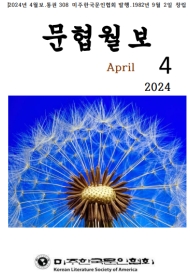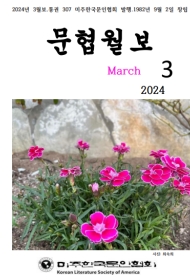IN RESPONSE TO EXECUTIVE ORDER 9066:
All Americans of Japanese Descent Must Report to Relocation Centers
====================================================================
Wolran Kim
December 2012
The author is Dwight Okita (1958~Present) who is a Japanese-American, gay, Buddhist poet and novelist. He was born in and lives in Chicago, Illinois. His father served in the 442nd Battalion, the most highly decorated unit of WWII, made up of Japanese-Americans recruited from the internment camps. Okita received a creative writing degree from the University of Illinois and published his first book of poems, Crossing with the Light, in 1992. This book is filled with acclaimed poems that have been reprinted in anthologies and textbooks, and studied in classrooms around the country. "Notes for a Poem on Being Asian American" was printed in the Norton Introduction to Literature.
The title is long compared to the poem, so the title explains enough background of the poetry – "IN RESPONSE TO EXECUTIVE ORDER 9066: All Americans of Japanese Descent Must Report to Relocation Centers." Executive Order 9066 was the evacuation order issued after the attack on Pearl Harbor in December 1941. It authorized the military to round up and incarcerate in detention camps all those individuals living in western states who were of Japanese descent. Some 110,000 Japanese-Americans were held in such camps for the remainder of the war. They were forced to give up their homes, businesses, and property, most of which was never returned to them. Ten such relocation camps were eventually built, most located in harsh desert regions such as Manzanar, California and Topaz, Utah.
Okita wrote "9066" around 1982. It was promptly published for the first time in the Asian American poetry anthology BREAKING SILENCE (Greenfield Review Press, 1983). He grew up hearing some vague reference to his parents being in "camps" during the war. This poem is inspired by his mother's personality and by his own wondering about what might have happened if she had been in high school that day. His mother said that the term "camp" always sounded fun, like summer camp. So he wrote the poem in the form of a kind of thank-you letter which I imagined she might have written to the American government. That is why this poem starts with “Dear Sirs.”
This is poetry in a literature genre, so the author’s intended audience is poetry readers. Also, the readers are Japanese, Japanese-American, and all American people because this writing is about their history which has a suggestiveness of the past. Later, the White House officially announced the Executive Order 9066 as the worst mistake they committed during the war. This mistake became one of the shameful strategies of the United States during WWII as well as the victory gained from dropping the atomic bomb, and a lot of lives were recorded as unwelcomed history. Under this Order, which was signed by Roosevelt, the President on February 19th 1942, Japanese-Americans had two and a half years of camp life just because of their Japanese lineage, regardless of if they were citizens of the United States or not.
About two-thirds of the 110,000 people were natural born citizens of the United States, and this fact was the reason the U.S. government recognized it as a worst mistake. Those 2nd generation Japanese-Americans suffered unfairness and the anti-Japanese sentiment had reached an extreme since the attack on Pearl Harbor. This was racism because the German and the Italian immigrants who were of hostile nationalities were never taken any action against from the government.
Okita says that the spirit of the poem is based on the true reality that Japanese-Americans were being forced to leave their homes; but the details of the poem are his own invention. This poem does not have any direct representation about the extreme situations such as the horrors of war and racism. However, the illusions hidden behind the simple and innocent expressions of the 14-year-old who is forced to relocate are appalling. For that reason, this poem gives a strange feeling with silent fear after reading it. This girl, who was created by the poet, is not afraid and realized the seriousness of reality, so she packs tomato seeds because she feels like she’s leaving to summer camp.
Her father says to her, “Where we’re going they won’t grow.” She says that she is just an ordinary girl with bad spelling and a messy room. She is unhandy with chopsticks and her favorite food is hot dogs just like any other average American kid. She is American in spite of the way she looks. Her best friend demands an explanation of why she tries to start a war from revealing a secret to the enemy. But she can’t give any answer because she has no idea what is going on with this confusing situation. She does not know where she will be when the first tomato ripens which she gave to her best friend as a last gift.
All Japanese-Americans were isolated from December 1941 until their relocation in the Spring of 1942. They could not buy even a single drop of oil at the gas station where signs were posted saying ‘Japs are not wanted,’ and they were called “Mad Dogs” or “Yellow Vermin.” In a time of peace, we feel that politics and war seem to be far away from our lives, but those things can strip away individual lives at any time. Written history is often covered with misunderstanding and distortion of the truth or righteousness, and is also repeated as so. This brutal history will not be repeated in the United States in the 21st century, but we remember that Arab immigrants had to suffer injustice after the events of September 11th. Reality of the world is repeating the past because millions of people still suffer and die in categories of religions, politics, borders, race, and ethnicities.
All Americans of Japanese Descent Must Report to Relocation Centers
====================================================================
Wolran Kim
December 2012
The author is Dwight Okita (1958~Present) who is a Japanese-American, gay, Buddhist poet and novelist. He was born in and lives in Chicago, Illinois. His father served in the 442nd Battalion, the most highly decorated unit of WWII, made up of Japanese-Americans recruited from the internment camps. Okita received a creative writing degree from the University of Illinois and published his first book of poems, Crossing with the Light, in 1992. This book is filled with acclaimed poems that have been reprinted in anthologies and textbooks, and studied in classrooms around the country. "Notes for a Poem on Being Asian American" was printed in the Norton Introduction to Literature.
The title is long compared to the poem, so the title explains enough background of the poetry – "IN RESPONSE TO EXECUTIVE ORDER 9066: All Americans of Japanese Descent Must Report to Relocation Centers." Executive Order 9066 was the evacuation order issued after the attack on Pearl Harbor in December 1941. It authorized the military to round up and incarcerate in detention camps all those individuals living in western states who were of Japanese descent. Some 110,000 Japanese-Americans were held in such camps for the remainder of the war. They were forced to give up their homes, businesses, and property, most of which was never returned to them. Ten such relocation camps were eventually built, most located in harsh desert regions such as Manzanar, California and Topaz, Utah.
Okita wrote "9066" around 1982. It was promptly published for the first time in the Asian American poetry anthology BREAKING SILENCE (Greenfield Review Press, 1983). He grew up hearing some vague reference to his parents being in "camps" during the war. This poem is inspired by his mother's personality and by his own wondering about what might have happened if she had been in high school that day. His mother said that the term "camp" always sounded fun, like summer camp. So he wrote the poem in the form of a kind of thank-you letter which I imagined she might have written to the American government. That is why this poem starts with “Dear Sirs.”
This is poetry in a literature genre, so the author’s intended audience is poetry readers. Also, the readers are Japanese, Japanese-American, and all American people because this writing is about their history which has a suggestiveness of the past. Later, the White House officially announced the Executive Order 9066 as the worst mistake they committed during the war. This mistake became one of the shameful strategies of the United States during WWII as well as the victory gained from dropping the atomic bomb, and a lot of lives were recorded as unwelcomed history. Under this Order, which was signed by Roosevelt, the President on February 19th 1942, Japanese-Americans had two and a half years of camp life just because of their Japanese lineage, regardless of if they were citizens of the United States or not.
About two-thirds of the 110,000 people were natural born citizens of the United States, and this fact was the reason the U.S. government recognized it as a worst mistake. Those 2nd generation Japanese-Americans suffered unfairness and the anti-Japanese sentiment had reached an extreme since the attack on Pearl Harbor. This was racism because the German and the Italian immigrants who were of hostile nationalities were never taken any action against from the government.
Okita says that the spirit of the poem is based on the true reality that Japanese-Americans were being forced to leave their homes; but the details of the poem are his own invention. This poem does not have any direct representation about the extreme situations such as the horrors of war and racism. However, the illusions hidden behind the simple and innocent expressions of the 14-year-old who is forced to relocate are appalling. For that reason, this poem gives a strange feeling with silent fear after reading it. This girl, who was created by the poet, is not afraid and realized the seriousness of reality, so she packs tomato seeds because she feels like she’s leaving to summer camp.
Her father says to her, “Where we’re going they won’t grow.” She says that she is just an ordinary girl with bad spelling and a messy room. She is unhandy with chopsticks and her favorite food is hot dogs just like any other average American kid. She is American in spite of the way she looks. Her best friend demands an explanation of why she tries to start a war from revealing a secret to the enemy. But she can’t give any answer because she has no idea what is going on with this confusing situation. She does not know where she will be when the first tomato ripens which she gave to her best friend as a last gift.
All Japanese-Americans were isolated from December 1941 until their relocation in the Spring of 1942. They could not buy even a single drop of oil at the gas station where signs were posted saying ‘Japs are not wanted,’ and they were called “Mad Dogs” or “Yellow Vermin.” In a time of peace, we feel that politics and war seem to be far away from our lives, but those things can strip away individual lives at any time. Written history is often covered with misunderstanding and distortion of the truth or righteousness, and is also repeated as so. This brutal history will not be repeated in the United States in the 21st century, but we remember that Arab immigrants had to suffer injustice after the events of September 11th. Reality of the world is repeating the past because millions of people still suffer and die in categories of religions, politics, borders, race, and ethnicities.













